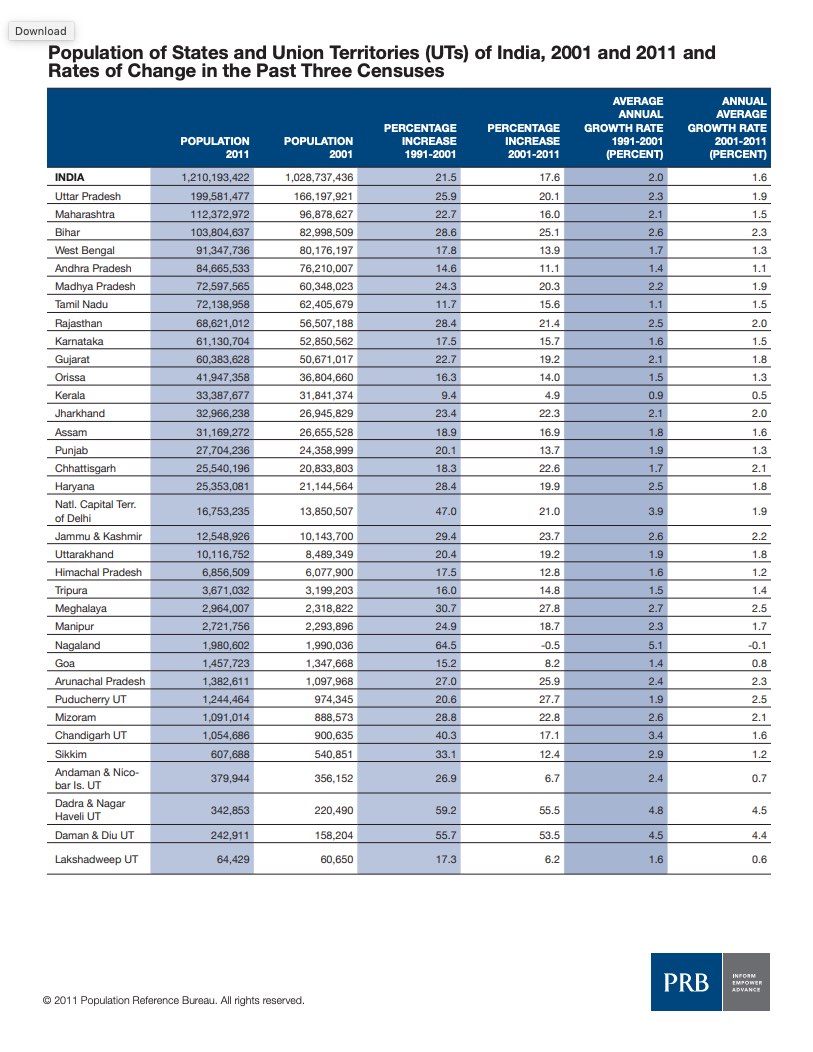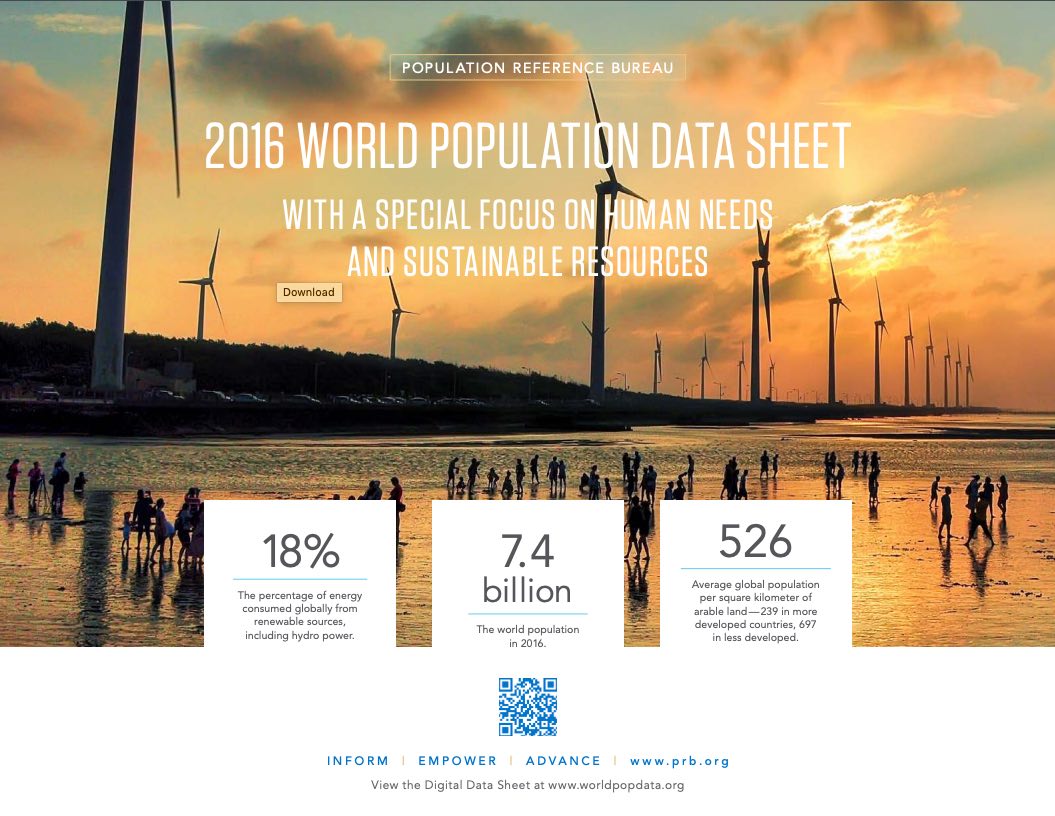Highlights From the 2024 World Population Data Sheet
Highlights From the 2024 World Population Data Sheet

Highlights From the 2024 World Population Data Sheet
This lesson provides students with the background to understand the importance of age structure on population growth.

(2011) Together, China and India account for 37 percent of the world’s population. Both countries have conducted censuses over the past year, and when they report their census results, figures such as the widely accepted world population total are at risk of changing.

(2011) Together, China and India account for 37 percent of the world’s population. Both countries have conducted censuses over the past year, and when they report their census results, figures such as the widely accepted world population total are at risk of changing.

Project: PACE: Policy, Advocacy, and Communication Enhanced for Population and Reproductive Health
The world population will reach 9.9 billion in 2050, up 33 percent from an estimated 7.4 billion now, according to projections included in the 2016 World Population Data Sheet from the Population Reference Bureau (PRB).
(2004) During the last two decades, agricultural expansion, logging, development, and other human activities caused the deforestation of more than 120,000 square kilometers each year.

Project: PACE: Policy, Advocacy, and Communication Enhanced for Population and Reproductive Health
The world population will reach 9.9 billion in 2050, up 33 percent from an estimated 7.4 billion now, according to projections included in the 2016 World Population Data Sheet from the Population Reference Bureau (PRB).
Nearly all future population growth will be in the world's less developed countries, and the poorest of these countries will see the greatest percentage increase.
Project: IDEA: Informing Decisionmakers to Act
PRB’s World Population Data Sheet is an annual report on the world’s demographic, health, and environmental progress and challenges.